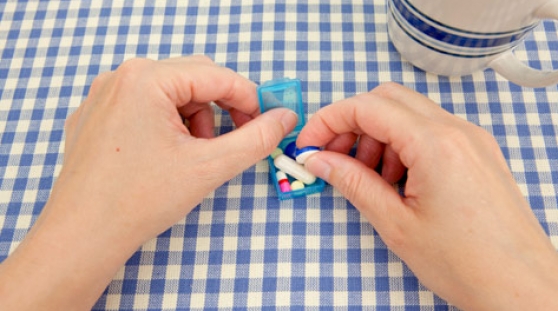Menopause Health Center
Table of Contents

Menopause is not an illness. It is an inevitable period in a woman's life during which the body begins to stop production of the hormones estrogen and progesterone. However, menopause does mean a woman’s body is more susceptible to aging and particular conditions without the protection these hormones can provide. Therefore, it is important to stay healthy during and after menopause.
Quitting smoking and eating a healthy diet that is low in fat and high in fiber with a variety of fruits, vegetables and whole grains is essential to women’s health. Make sure you are getting enough calcium and vitamin D. Your doctor may recommend that you take these minerals as supplements even if you also include them in your diet. Osteoporosis is common with menopause, and increased calcium intake can prevent and slow the condition’s progression.
Maintaing a healthy weight is also important as you age and go through menopause. And since menopause can affect bone health, you might consider exercises like walking, jogging or even dancing not only to maintain a healthy weight but also to promote strong bones. Talk to your doctor or health care provider to determine a healthy weight and appropriate exercise plan for you.
If you are experiencing more severe symptoms of menopause or related conditions, visit your doctor to discuss if medications are right for you. Medications for high blood pressure, high cholesterol and osteoporosis are important to consider, as menopause increases the risks for these conditions.
The following are some medication options women may wish to consider:
- Birth control. During menopause, certain oral birth control pills may be used to help with very heavy, frequent or unpredictable menstrual periods. They may also help with hot flashes.
- Menopausal hormone therapy (MHT), or hormone replacement therapy (HRT). This type of treatment can help manage menopause symptoms and prevent bone loss that occurs with menopause. There are risks associated with HRT that may be more prominent for some women. It is important to remember that while HRT has been shown to increase the risks of certain diseases, the benefits of HRT for some women may outweigh the risks. Talk to your gynecologist about whether these medications will be helpful for treating your menopausal symtpoms.
Water-based vaginal lubricants (not petroleum jelly) or a vaginal estrogen cream or tablet can be used to relieve vaginal discomfort or dryness.
Phytoestrogens are estrogen-like substances that work in the body like estrogen but are weaker. Regular ingestion of phytoestrogens may relieve some symptoms of menopause. They can be found in some cereals, vegetables, legumes (including soy) and various herbs. Overindulgence in phytoestrogens may carry risks and women should talk to their doctor when considering using them.
Menopause also indicates the need for regular pelvic and breast exams, PAP tests and mammograms. It is also smart to be checked for colon, rectal and skin cancer. Contact your doctor immediately if you notice a lump in your breast or a mole that has changed.
